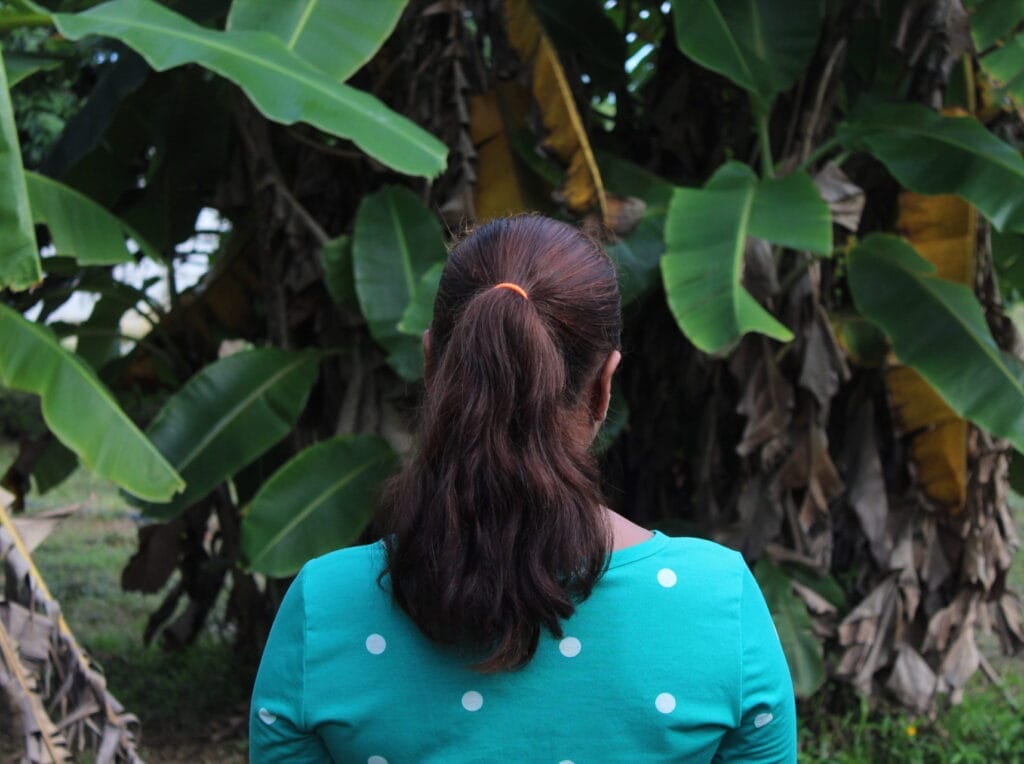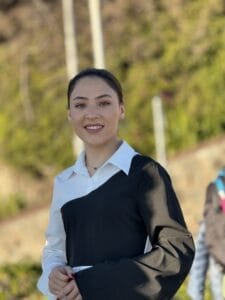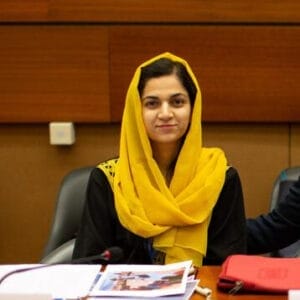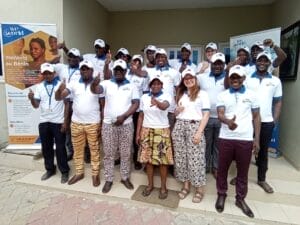
“I would tell other women what I would have liked to hear back then, but that no one told me. I would tell them to love themselves. I have now learned to do that, to love myself, to value myself, to speak up and not remain silent.”
Today, November 25th, marks the International Day for the Elimination of Violence against Women, and at WeWorld in Nicaragua we work throughout the year to improve the situation of many women, children and teenagers who continue to be victims of this problem. Through various projects and with the help of local women's organizations, we seek to provide opportunities and empower women, promoting respect for equality and diversity. These local organizations, with which we collaborate, have care shelters for survivors of gender violence, which are fundamental since they provide medical, psychological and legal support, allowing survivors to start building a future in which they know themselves better, have more tools and can develop and accomplish personal projects.
During our visit to one of these care shelters, we were able to talk with Kattia. She is a 14-year-old teenager who arrived a little less than 4 years ago. Since she is still a minor and has no family or acquaintances outside, she continues to live in the shelter. She told us that she does not know where she was born, that she can only tell us that before entering, she lived in the country's capital: Managua.
“I think this place is good, and it is very nice because when a person enters here, they enter in bad conditions, without knowing anything. But later, when they leave, and go through that gate, they leave as women, as empowered women that know and know themselves. Women who are not going to let themselves be carried away by anyone, or by anything.”
The shelter in which Kattia lives is managed by the Nidia White Women's Movement Association of Bilwi, in the Nicaraguan Region of the Northern Caribbean Coast. This association was born in the late 1980s and we are currently supporting it and its work. The Organization provides, under an intercultural approach, comprehensive care to women, children and teenagers survivors of gender violence and sexual abuse. Moreover, including the indigenous and afro-descendant women’s views, it also offers advisory services, legal support and monitoring, individual and group psychological care, as well aspromotion and training activities.
The day we spoke with Kattia, the shelter was hosting 16 other women and teenagers, and she allowed us to get closer and learn more about the daily life in the shelter.
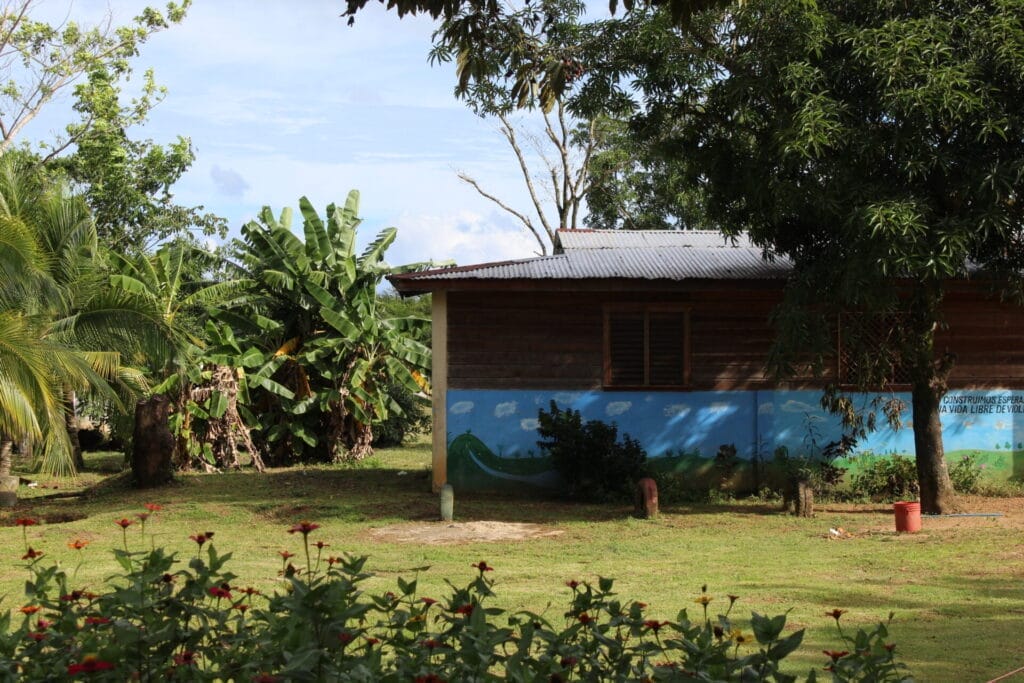
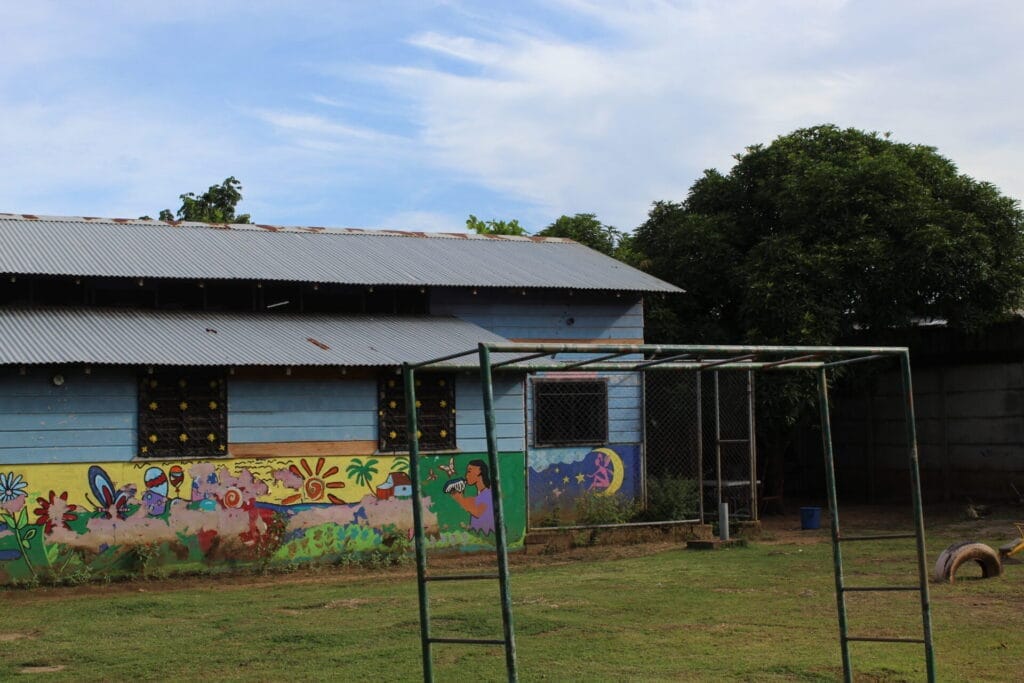
“When I came here, I hardly knew anything,” she tells us, “I didn't know about violence, abuse, human trafficking, bullying. And now that I know about all these topics, I understand how important they are, how important it is for us to know and understand the reality. What I liked to know the most is that when a person is treating us badly, we have to talk with someone, we have to say what we feel and not stay silent. Because otherwise no one will ever know anything and we will always have to live in the same abuse, in the same violence. That's what I liked about what they taught us, that we don't have to stay silent, that these situations are not normal, that we need to talk."
To continue understanding better the lives of these women in the shelter, we asked Kattia about her routines and the things she liked to do. Thanks to the psychology sessions and the support of the shelter staff, she learned to understand and manage her emotions, to talk about them and to cry and not to feel weak or guilty for doing so. She also writes in a journal that she started the week that she entered the shelter. This journal represents the opportunity to give herself the necessary space to express everything she feels and thinks or the things she does during her day. Writing, for her, “is part of a fundamental process, within the long path I am in”.
Kattia's story, like the story of so many women, is that of a girl who has to abandon everything she knows, who barely keeps memories of her childhood and who is forced to start from scratch, without even having the support of her family or of her loved ones.
“I would tell other women what I would have liked to hear back then, but that no one told me. Don't give up, you will get ahead, don't sink into your sadness or fear, don't worry, little by little your sadness will disappear. I would tell them to love themselves. I have now learned to do that, to love myself, to value myself, to speak up and not to remain silent, and to encourage all my colleagues not to remain silent to listen and support each other.”
After Kattia's statement and knowing how rooted these words and thoughts are inside of her; after we said goodbye, the wall at the exit of the shelter reminded us about the same idea “United We Build Hope for a Life Free of Violence”.
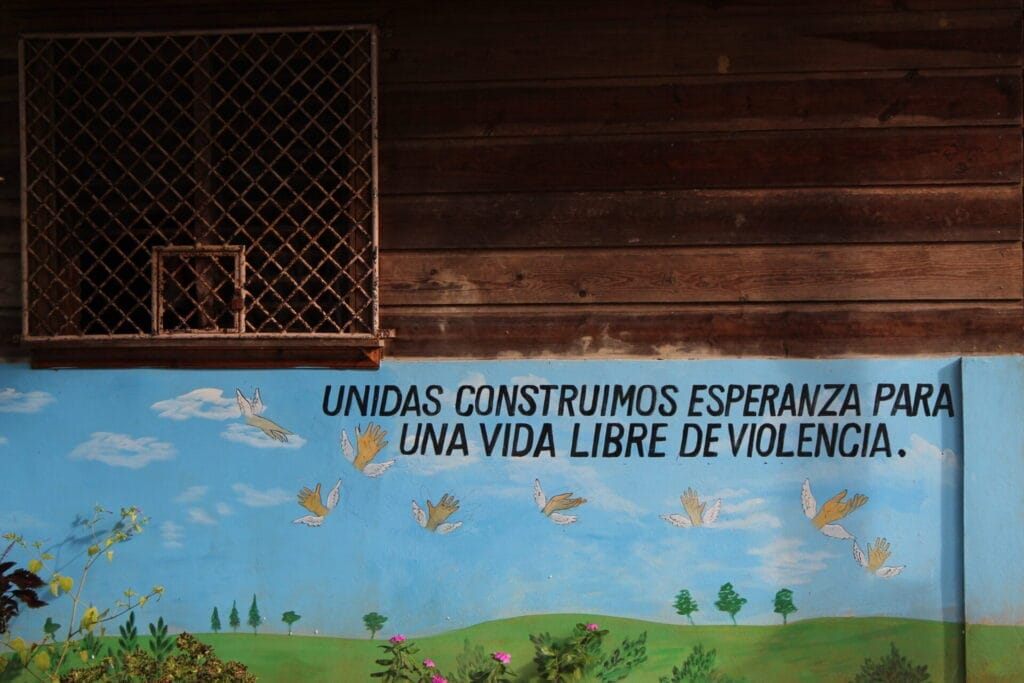
It is of utmost importance to focus on and support activities that help improve awareness about this type of violence as well as to improve the quality of the information on sexual and reproductive health issues or the management of menstrual hygiene, among others. Likewise, it is fundamental to be able to reach all parts of society, making young people, leaders, promoters and people of all ages active agents of this change.
Andreia Silva, the Coordinator of our Gender Program in the country explains that:
“It is vital to continue working on this area. WeWorld has integrated a gender approach into all of its programs, and the gender projects in particular focus on strengthening local organizations. These organizations often face difficulties in maintaining their activities due to the low presence of cooperation projects with a main focus on the prevention and response to Gender-Based Violence (GBV) in the country. Our approach is comprehensive, ranging from prevention to response to GBV, and involves women, men, children and teenagers in all their diversity, including community and religious leaders, as well as local institutions. We understand that it is essential to strengthen community protection networks and promote the economic empowerment of women. We will continue to contribute to the change necessary for a more equal and secure future, working 365 days a year on the matter.”

